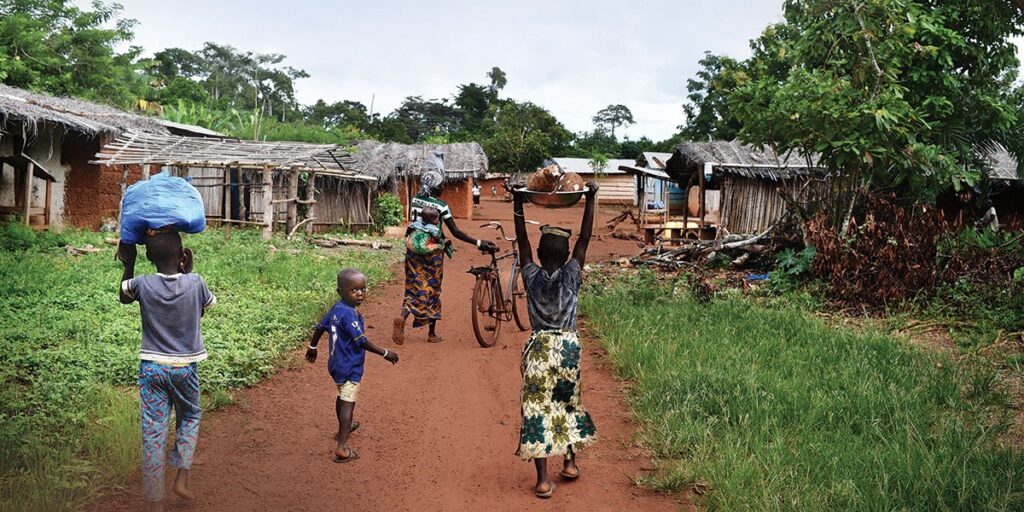Washington University’s long-running Death to Onchocerciasis and Lymphatic Filariasis (DOLF) Project is part of a large global effort to eliminate neglected tropical diseases (NTDs), which affect a billion people worldwide.
Elimination of a number of NTDs is part of the sustainable development goals of the United Nations. The DOLF Project is co-led by Peter U. Fischer, PhD, a professor of medicine, and Gary J. Weil, MD, the Gerald & Judith Medoff Professor of Infectious Diseases and a professor of medicine and of molecular microbiology, both at Washington University School of Medicine in St. Louis.
With funding from the Bill & Melinda Gates Foundation and support from a large network of international collaborators, the DOLF Project has made big strides towards eliminating river blindness and elephantiasis, parasitic worm diseases common in parts of Africa and the Asia-Pacific. The WashU research team has numerous partners in these regions and study sites in the Democratic Republic of the Congo, Ghana, Indonesia, Ivory Coast, Liberia and Papua New Guinea.
About 800 million people worldwide are at risk of developing lymphatic filariasis, also known as elephantiasis, a disfiguring and disabling mosquito-borne worm infection that causes massive swelling in the legs, feet and scrotum.
Globally, enormous progress has been made in reducing lymphatic filariasis and river blindness, but it will take decades to achieve full elimination with current treatment strategies. So there is an urgent need to develop new tools and approaches to speed the elimination of both diseases.
Gary Weil
Weil and Fischer have been studying these afflictions for decades. The road to progress has been long, but current mass drug administration (MDA) programs offer reasons for optimism. The DOLF Project has led clinical trials and community studies of the safety and efficacy of a single-dose triple-drug combination therapy, known as IDA (ivermectin, DEC and albendazole) for lymphatic filariasis (LF). IDA is now being used in MDA programs in many countries to accelerate LF elimination.
These pioneering efforts have been recognized with a Public Library of Science (PLoS) collection of publications. The collection contains 11 articles by the DOLF Project on the safety, efficacy and acceptability of mass administration of IDA for lymphatic filariasis. Since 2010 results of the DOLF project have been published in over 70 reports.
Data from these studies informed the World Health Organization (WHO) decision to endorse IDA in 2017 and extend drug donations by pharmaceutical companies. Tens of millions of people now receive the triple-drug combination each year, accelerating progress toward the WHO’s goal of eliminating the disease as a public health problem worldwide by 2030.
